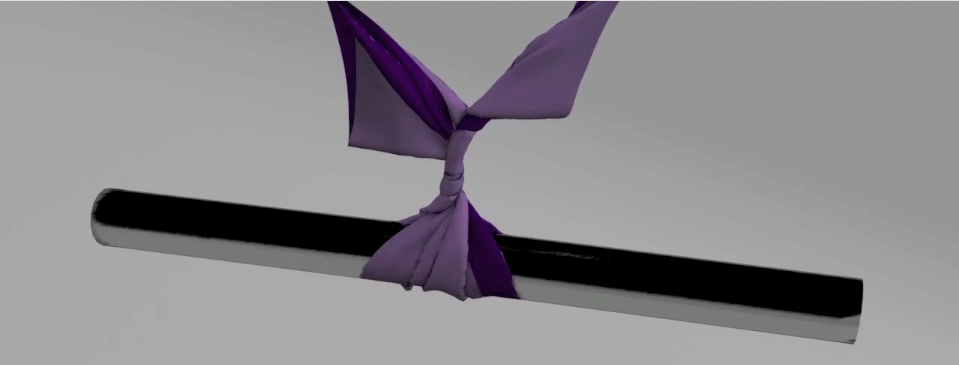Speculative Parallel Asynchronous Contact Mechanics
We extend the Asynchronous Contact Mechanics algorithm [Harmon et al. 2009] and improve its performance by two orders of magnitude, using only optimizations that do not compromise ACM’s three guarantees of safety, progress, and correctness.
November 1, 2012
ACM SIGGRAPH Asia 2012
Authors
Samantha Ainsley (Columbia University)
Etienne Vouga (Columbia University)
Eitan Grinspun (Columbia University)
Rasmus Tamstorf (Walt Disney Animation Studios)
Speculative Parallel Asynchronous Contact Mechanics
We extend the Asynchronous Contact Mechanics algorithm [Harmon et al. 2009] and improve its performance by two orders of magnitude, using only optimizations that do not compromise ACM’s three guarantees of safety, progress, and correctness. The key to this speedup is replacing ACM’s timid, forward-looking mechanism for detecting collisions—locating and rescheduling separating plane kinetic data structures—with an optimistic speculative method inspired by Mirtich’s rigid body Time Warp algorithm [2000]. Time warp allows us to perform collision detection over a window of time containing many of ACM’s asynchronous trajectory changes; in this way, we cull away large intervals as being collision free. Moreover, by replacing force processing intermingled with KDS rescheduling by windows of pure processing followed by collision detection, we transform an algorithm that is very difficult to parallelize into one that is embarrassingly parallel.

